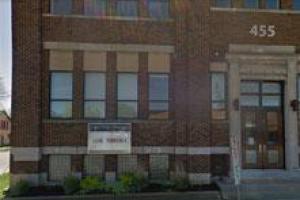Safe, Inclusive and Accepting Schools
The Brant Haldimand Norfolk Catholic District School Board proclaims that all people are created in the image and likeness of God and, as such, that all people have the right to be treated with dignity, respect and fairness. The Board recognizes that a positive school climate exists when all members of the school community feel safe, included and accepted and actively promote positive behaviours and interactions. A safe, inclusive, and accepting learning environment enables students to reach their full academic and spiritual potential.
- Ministry of Education’s Safe and Accepting Schools site
- School Safe and Accepting School Plan - 2023-2027
Accepting Schools Act - Bill 13
The Accepting Schools Act came into full force on February 1, 2013. The main purposes of this legislation and subsequent provincial policy statements are to strengthen equity and inclusive education principles, bullying prevention and intervention strategies, and progressive discipline strategies. Bill 13 is a part of the Ministry of Education’s Comprehensive Action Plan for accepting schools.
- View the Ministry of Education's Information for Parents about the Accepting Schools Act (Bill 13)
- View our Board's Presentation for School Councils on Bill 13
Code of Conduct
Ontario’s Code of Conduct sets out clear standards of behaviour that apply to everyone in the school community, including students, parents and guardians, teachers or other staff members, volunteers, visitors, and third-party groups which are using school facilities. The Code of Conduct applies on school property, on school buses, during school-related activities, and in any other circumstances that could have an impact on the school climate.
- View Ontario's Code of Conduct
- View our Board's District Code of Conduct
Equity and Inclusive Education Strategy
Our Board is committed to the life and mission of the Catholic Church by providing a learning environment in which all individuals are treated with respect and dignity, regardless of race, ancestry, place of origin, colour, ethnic origin, citizenship, creed, sex, sexual orientation, age, record of offences, marital status, or family status or disability, in accordance with the Ontario Human Rights Code and Ontario Ministry of Education policy.
- View the Ministry of Education's Quick Facts - Equity and Inclusive Education Strategy
- View our Board's Equity and Inclusive Education Policy
Progressive Discipline
Our Board recognizes that progressive discipline involves a whole-school approach that makes use of a continuum of prevention programs, interventions, supports, and consequences that build skills for healthy relationships and promotes respectful student behaviour.
The Board also recognizes that inappropriate student behaviour, including bullying, must be addressed in a way that is both supportive and corrective and that takes into consideration mitigating and other circumstances.
- View our Board's Student Behaviour, Discipline and Safety Policy #200.09
Bullying Prevention and Intervention
Bullying is an aggressive and typically repeated behaviour intended to have the effect of:
- causing harm, fear or distress to another individual, including physical, psychological, social or academic harm, harm to the individual’s reputation or harm to the individual’s property, or
- creating a negative environment at a school for another individual
Bullying behaviour occurs in a context where there is a real or perceived power imbalance between the perpetrator and the victim based on factors such as size, strength, age, intelligence, economic or social status, religion, ethnic origin, gender, race, disability or the receipt of special education.
For the purposes of the definition of bullying, behaviour includes the use of any physical, verbal, electronic, written or other means.
Bullying will not be accepted on school property, at school-related activities, on school buses, or in any other circumstances where engaging in bullying will have a negative impact on the school climate.
- View our Board's Student Behaviour, Discipline and Safety Policy #200.09







